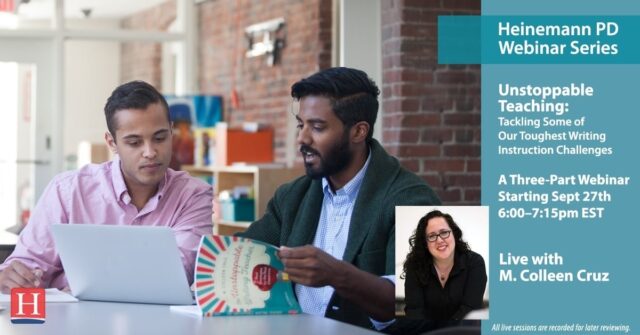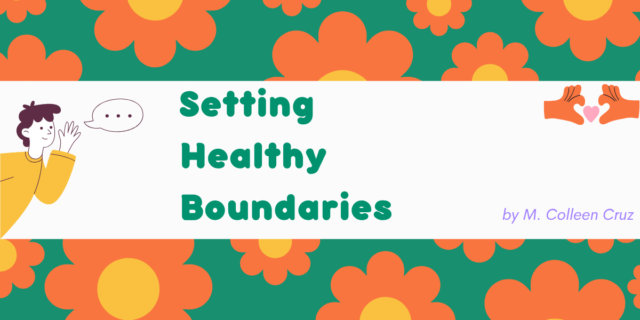
When we talk about the high-risk mistakes or the mistakes that have more impact for those on the mistake’s receiving end, we still need to hold onto the awareness that there is such a thing as “good” mistakes. Our fear of negative impact can’t keep us frozen and passive. Instead, it’s about maintaining awareness so that we avoid as much negative impact as possible and that we take responsibility when the unavoidable negative impact happens. Mistakes are necessary on our path to learning. Knowing that there are different types might feel like semantics, but I believe that knowledge helps reduce negative errors and increase and welcome the positive errors.
Just like botanists learn how to identify flora and fauna, astronomers learn how to identify celestial bodies, and grammarians learn how to identify parts of speech, folks who study mistakes can develop a type of expertise when we start to consider ways to identify mistakes. This is because, like all things we study, it is easier to engage in a focused inquiry when we have names for things. We can identify patterns, notice challenges, consider alternatives only when we can articulate what we are specifically discussing. Naming is powerful.
With naming also comes the ability to categorize, rank, and value. Eduardo Briceño (2015b) gives us useful categories for four types of mistakes. Two types are more negative, and two types are more positive.
- Stretch mistakes: These are the types of positive mistakes most teachers and grown-ups like to talk about. These are the mistakes we make when we’re trying something hard. Like a new algorithm, a logic strategy, or a complicated pipette technique. We’re moving out of our comfort zone; because we’re trying something new, we don’t exactly get it right the first time. These are the mistakes the motivational posters are about.
- Aha moment mistakes: These are positive mistakes we make when we don’t have all the information, so we think we’re doing the right thing, until it becomes really clear it is not the right thing. One typical example is just how similar sugar and salt look when you mix them up while baking. In the classroom, these can happen the first time we try to teach a new grade or lesson. We lean on what we have in our curriculum guides or what our colleagues tell us. But as we move through that first lesson on quadrilaterals, we realize that the prerequisite teaching on angles and congruence hasn’t happened. Or at least the students haven’t retained it. Aha moment mistakes are also a type that give us a big learning experience. But unlike stretch mistakes, where we don’t yet have the mastery of something, our mistakes allow us to see our areas of ignorance.
- Sloppy mistakes: These are the minor villains in the mistake world, the ones we like to catch other people making and hate to be caught doing ourselves. These are the mistakes we make when we’re doing something we should know how to do, but we lose concentration or take something for granted and make a silly mistake that we really should not have made. We rush heading out the door and leave our coffee on the counter. We give our students a long and elaborate lecture about personal responsibility and the importance of meeting academic demands after most of them failed to meet a key deadline, only to realize halfway through the lecture we are talking to the wrong class. Annoying. Low stakes. Easy to take ownership of.
- High-stakes mistakes: These are mistakes we really don’t want to make. When the stakes are high, these types of mistakes can be life changing, or even cause physical harm. For example, when a parent asks us if we think they should have their child evaluated for possible services and we reflexively say no, but we almost instantly regret that response because we know the student is struggling too much with the content and suspect that there might be a learning disability. Yes, we can learn from these high-stakes mistakes, too, but these are also the mistakes we want to try to avoid making when we can. When we’re in a high stakes situation we want to do as much as possible to avoid mistakes. Education, like medicine and other first responder careers, is filled with high-stakes mistake pressure. We live each day knowing that our choices can make or break a child’s ability to learn to read, reason, or reach their academic, career, or personal goals.
A Teacher’s Guide to Learning from Mistakes by Colleen Cruz.

Fan of Podcasts? Listen to a recent conversation between Colleen Cruz and Nell Duke.
• • •
 In addition to being the author of The Unstoppable Writing Teacher, M. Colleen Cruz is the author of several other titles for teachers, including Independent Writing and A Quick Guide to Helping Struggling Writers, as well as the author of the young adult novel Border Crossing, a Tomás Rivera Mexican American Children's Book Award Finalist. Colleen was a classroom teacher in general education and inclusive settings before joining the Teachers College Reading and Writing Project where she is Director of Innovation. Colleen presently supports schools, teachers and their students nationally and internationally as a literacy consultant. Fine Colleen on Twitter @colleen_cruz.
In addition to being the author of The Unstoppable Writing Teacher, M. Colleen Cruz is the author of several other titles for teachers, including Independent Writing and A Quick Guide to Helping Struggling Writers, as well as the author of the young adult novel Border Crossing, a Tomás Rivera Mexican American Children's Book Award Finalist. Colleen was a classroom teacher in general education and inclusive settings before joining the Teachers College Reading and Writing Project where she is Director of Innovation. Colleen presently supports schools, teachers and their students nationally and internationally as a literacy consultant. Fine Colleen on Twitter @colleen_cruz.




